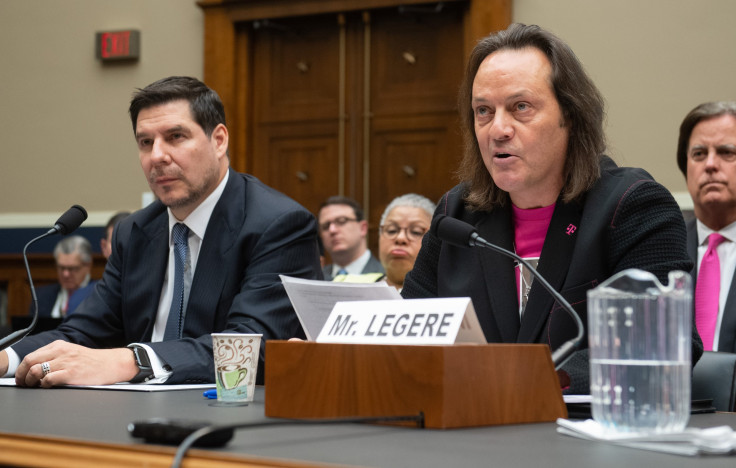T-Mobile, Sprint Merger ‘Will Win Approval,’ Deutsche Telekom CEO Says

Deutsche Telekom CEO Tim Hoettges expressed the optimism that the $26 billion T-Mobile-Sprint merger deal would be approved by the U.S. regulators.
Deutsche Telekom AG is the parent company of T-Mobile US.
Hoettges told the German company’s annual general meeting that the “deal is good for America and that we at the end of the day, will win approval for the transaction.”
He noted that the clock on the 180-day review of the deal was paused and restarts on April 4.
New hurdles on the deal
Meanwhile, new hurdles are gathering against the T-Mobile-Sprint deal. Some states are jointly exploring the option of moving a lawsuit to block the deal on antitrust grounds even if the Justice Department gives the nod.
Many state attorneys general are planning to investigate whether the deal harms competition and force consumers to pay higher prices.
At a meeting of state attorneys in early March, Maryland Attorney General Brian Frosh called T-Mobile’s proposed Sprint merger “dangerous for consumers." But T-Mobile customer service pledges better 5G service by the combined company.
States’ antitrust investigation can stonewall T-Mobile and Sprint’s plan that aims at taking on industry leaders AT&T and Verizon Communications.
Jointly, T-Mobile and Sprint could command about 30 percent of the national wireless market, in which a significantly higher market share will go to them in many states.
Foreign ownership issue
The foreign ownership of T-Mobile and Sprint is also a factor vexing the regulatory approval process. This is because Chinese tech equipment firms such as Huawei Technologies and ZTE are under scrutiny for cybersecurity issues within and outside the U.S.
Deutsche Telekom is a customer of Chinese companies. Despite John Legere T-Mobile CEO having told the Congress in February that the New T-Mobile will not use the gear of China's Huawei or ZTE Deutsche Telekom has not made such commitments.
Sprint’s argument of weak cash flow
Meanwhile, Sprint’s privately expressed argument to regulators may backfire on the deal’s prospects.
Sprint argued that the merger with T-Mobile US Inc is important for its future and invited resistance from the U.S. officials vetting the $26.5 billion wireless deal.
Sprint argued that without the deal it will go “relatively weak.” This is not supporting a merger, said Fred Campbell, a former chief of the wireless bureau at the Federal Communications Commission.
Sprint told regulators behind doors that it cannot compete well if the merger is blocked and warned it may run out of cash if the merger does not come through.
Sprint Chief Executive Officer Michel Combes told FCC that it must pay more attention to his message of distress. Although it is not making a case that Sprint is nearing collapse, certainly growth prospects are grim.
For the Justice Department, the U.S. industrial policy is not an issue in taking a final call on merger and it only sees whether a deal harms competition or not, noted Andrew Finch, a top official in the anti-trust division of FCC.
© Copyright IBTimes 2025. All rights reserved.





















